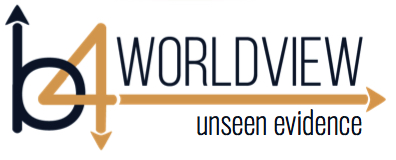
Key Thought for this session:
“Ultimately I can go only one of two ways — which path do I take?”
The correct answer was “All the above” because the word “carnal” in the Bible refers to a Christian who is focused on getting their needs met from the physical world, and who behaves as though their circumstances determine the amount of peace and joy they have, and who seems to think God will value them more if they do good things to please Him.
With this in mind, let’s review the core assumptions model and then see how you might apply it in typical everyday life situations. (If you’d like a copy of this model, you can find it in a printable form at the Web address listed here: http://www.b4worldview.com/coreassumptions.html . You can copy the link and paste it into a new browser tab, and then print it from there.)
Remember, because these are core assumptions, you may not always be aware of how they influence you. You may think both columns can be true about what you believe, but deep down one is influencing you more than the other.
So, to start with, we’ve organized our chart into the two columns. The first one we are labeling as “Carnal Identity,” which we have also called “Column A” thinking throughout this course, and it identifies those who are primarily oriented on the physical realm. The second column we are labeling as “Spiritual Identity,” which we have also called “Column B” thinking throughout this course, and it identifies those who are primarily oriented on the more permanent supernatural provisions of God that exist in the spiritual world.
The first category in our chart addresses the concept of TRUTH. Specifically, “How is truth defined and found?” We have seen that the Carnal mind prefers to think of truth as being inferred from knowledge that is gained by the physical observations of an object that is under consideration. And in contrast, the Spiritual minded person prefers to think of truth as that which is disclosed by the originator; and for these people, usually the ultimate originator is God.
From these insights, we have seen that there are some follow-on implications, or corollaries. The first is that for the Carnal mindset, truth is relative in that it is subjective and can be different for different observers because of “baked-in” biases; this leads to the perception that truth can change over time and is dependent on circumstances. In contrast, the Spiritually minded person sees truth as absolute in that it is objective and is not dependent on personal individual interpretation or observation, and does not vary with time and circumstances.
Also, we have seen that this dependence (or independence) on circumstances produces in me, if I am a carnally minded person, that something is good if it favors me. And if I am a spiritually minded person, I will instead tend to attribute the goodness of something as a quality it inherits from its originator.
So now let me ask how YOU prefer to think about what is the best way for YOU to find truth.